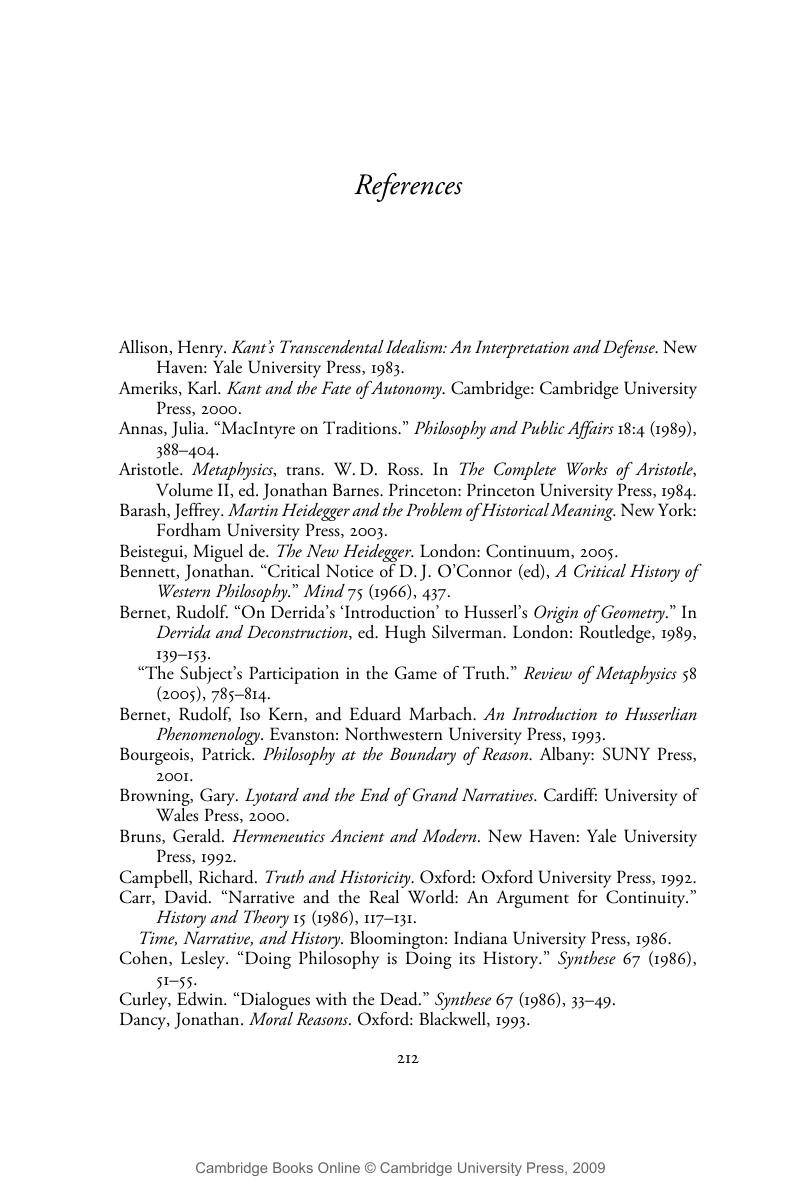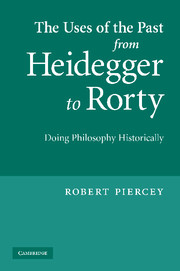Book contents
- Frontmatter
- Contents
- Acknowledgments
- List of abbreviations
- Introduction: The uses of the past
- 1 Doing philosophy historically
- 2 The role of narrative
- 3 Defending the historical thesis
- 4 The critical approach: MacIntyre
- 5 The diagnostic approach: Heidegger
- 6 The synthetic approach: Ricoeur
- Consequences
- References
- Index
- References
References
Published online by Cambridge University Press: 31 August 2009
- Frontmatter
- Contents
- Acknowledgments
- List of abbreviations
- Introduction: The uses of the past
- 1 Doing philosophy historically
- 2 The role of narrative
- 3 Defending the historical thesis
- 4 The critical approach: MacIntyre
- 5 The diagnostic approach: Heidegger
- 6 The synthetic approach: Ricoeur
- Consequences
- References
- Index
- References
Summary

- Type
- Chapter
- Information
- The Uses of the Past from Heidegger to RortyDoing Philosophy Historically, pp. 212 - 218Publisher: Cambridge University PressPrint publication year: 2009



